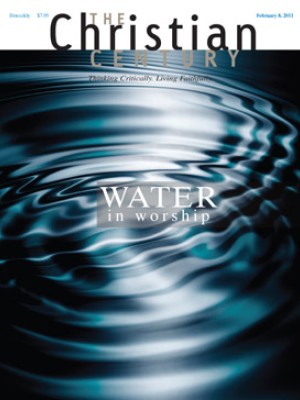Senator ends probe of ministries, calls for ‘self-reform’
Sen. Charles Grassley of Iowa, having concluded a three-year probe
into alleged lavish spending at six major broadcast ministries, has
asked a prominent evangelical group to study ways to spur "self-reform"
among religious groups.
Since 2007, Grassley, the outgoing top
Republican on the Senate Finance Committee, has pursued allegations of
high salaries and the use of private jets and Rolls Royces by some of
the nation's most prominent TV ministers.
His final 61-page
review, released January 6, said evangelists Benny Hinn of Texas and
Joyce Meyer of Missouri had made "significant reforms" in their
operations, but four others provided incomplete or no responses.
Grassley
staffers determined that they did not have "time or resources" to issue
subpoenas to the four ministries that did not completely respond to
their inquiries. They instead issued reports based on public records,
third parties and insiders.
The senator asked the Evangelical
Council on Financial Accountability to conduct a formal study of issues
raised by his staff, including whether churches, like other nonprofits,
should be required to file detailed financial disclosure forms to the
Internal Revenue Service.
Read our latest issue or browse back issues.
"The staff review sets the stage for a
comprehensive discussion among churches and religious organizations,"
Grassley said in a statement. "I look forward to helping facilitate this
dialogue and fostering an environment for self-reform within the
community."
Both Grassley and ECFA officials said they hope to resolve issues in ways that do not involve new legislation.
However,
Americans United for Separation of Church and State criticized the
report's recommendation to consider repealing the prohibition of church
electioneering—a subject that the staff review acknowledged was "not a
central issue" in Grassley's probe.
Calling the recommendation "a
breathtakingly wrong-headed suggestion," Barry Lynn, executive director
of Americans United, said: "If these multimillion-dollar ministries are
already misusing their donations for personal gain, imagine how much
more dangerous they would be operating in the world of partisan
politics."
Michael Batts, an ECFA board member and certified
public accountant who will chair the ECFA's new Commission on
Accountability and Policy for Religious Organizations, said of his role
generally: "Less government is better, and I think both ECFA and the
senator espouse that philosophy."
Although the association has
worked primarily on certifying the financial integrity of evangelical
groups, the commission will evaluate a range of religious organizations
and other nonprofits. "These issues are the types of issues that
transcend theology and doctrine and actually relate to the freedoms and
the practices of all religious organizations," Batts said at a January 7
news conference.
There is no timetable set for how long the new
commission will work before sending Grassley a report, but ECFA
president Dan Busby said it would be "a robust process" of more than a
few months. Among financial issues they will consider are whether there
should be limits on clergy housing allowances and whether tax rules
about "love offerings" received by clergy should be clarified.
Grassley's
report on the charismatic and Pentecostal ministries included accounts
of stonewalling and internal pressures to resist the inquiries. Among
their findings:
- Insiders in Kenneth
Copeland Ministries in Fort Worth, Texas, said they were intimidated
from speaking with committee staff, with one former employee saying they
were told "God will blight our finances" if they talked. -
Georgia pastor Creflo Dollar's ministry was called the "least
cooperative," with staffers unable to determine the names of board
members. - The majority of questions asked by Grassley staffers
of Bishop Eddie Long's megachurch in Lithonia, Georgia, remained
unanswered, including the amount of his salary. - Several former
staffers at Paula White's megachurch in Tampa, Florida, wanted to speak
with staffers but "were afraid of being sued by the church," and at
least one was reminded by a church lawyer of a previously signed
confidentiality agreement. —RNS






